| |
|
|
The basic element for most
adders called a Full Adder (and can be formed by two
Half Adders :-)The
Full Adder able to "calculate" the sum of 3-bits and
hence give results like 0, 1, 2 or 3 (decimal
numbers) which 00, 01, 10 or 11 binary.
|
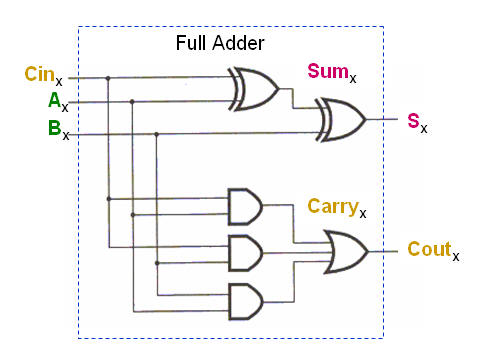
|
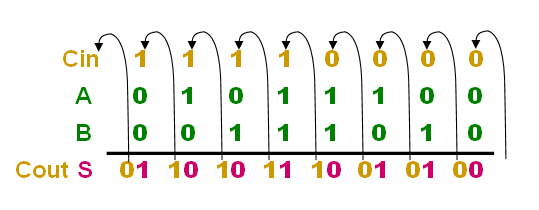 |
|
|
|
In order to
create adders for N+N-bit addition must you
take N Full Adders and connect the in a chain.
The principle will be very
much the same when we do the addition by "hand" at a
sheet of paper.
|
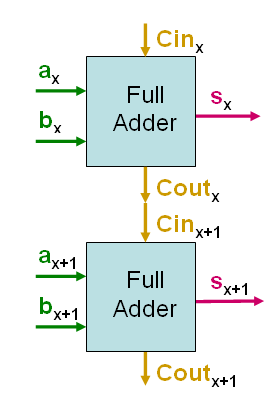 |
|
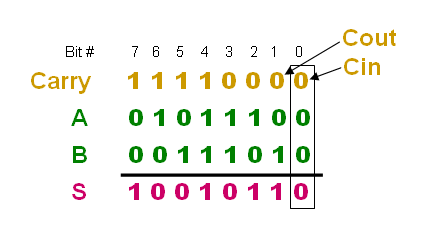 |
|
|
|
The good thing about Ripple Carry adders the
relative simple hardware it takes to form a N+N-bit
adder.
The bad thing can be found
the nature of the Ripple Carry. It cost 2 x Gate
delays for each stage formed by a Full Adder.
A 32-bit Adder will then:
Use 128 Gates for the
Carry Chain
Have a propagation
delay of 64x Tp
|
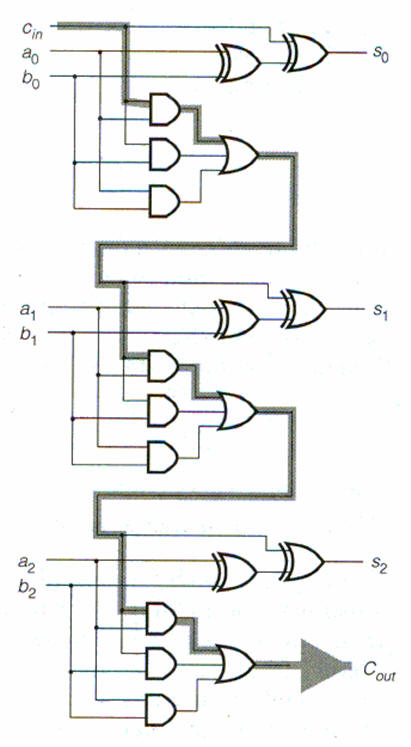
|
|
|
|
The "text-book" implementation.
|
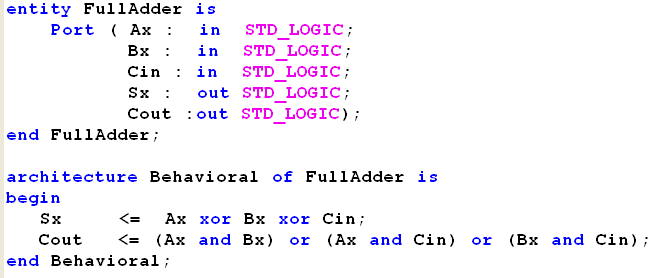 |
|
|
|
Alternative version of the FA which in the end
will be implemented the same way as the "Text-book"
version above.
|
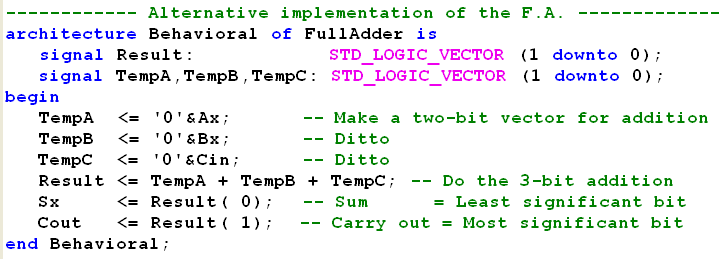 |
|
|
|
One way of implementation could be a schematic
diagram with 32 Full Adders drawn and connected in a
chain.
Alternative could a
Structured VHDL code be written with the same result
- 32 Full Adder connected in a chain.
The most elegant way how
ever to use the generate statement of VHDL and an
internal Carry Vector with N+1 elements.
Each Full Adder will then
take a Carry from Carry(i) and produce the next
Carry for Carry(i+1).
The Last element in the
Carry chain will in the end be the new Cout value.
|
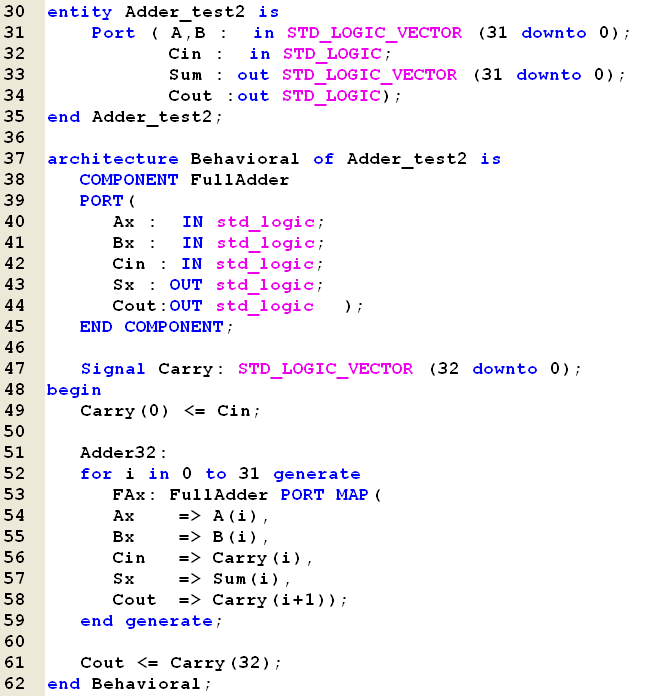 |
|
|
|
Just as expected will a 32+32-bit adder use 64
LUTs (one LUT for the SUM and one LUT for the Carry
in each Full Adder)
|
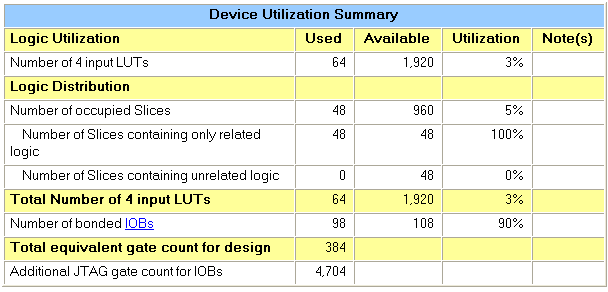 |
|
|
|
| |
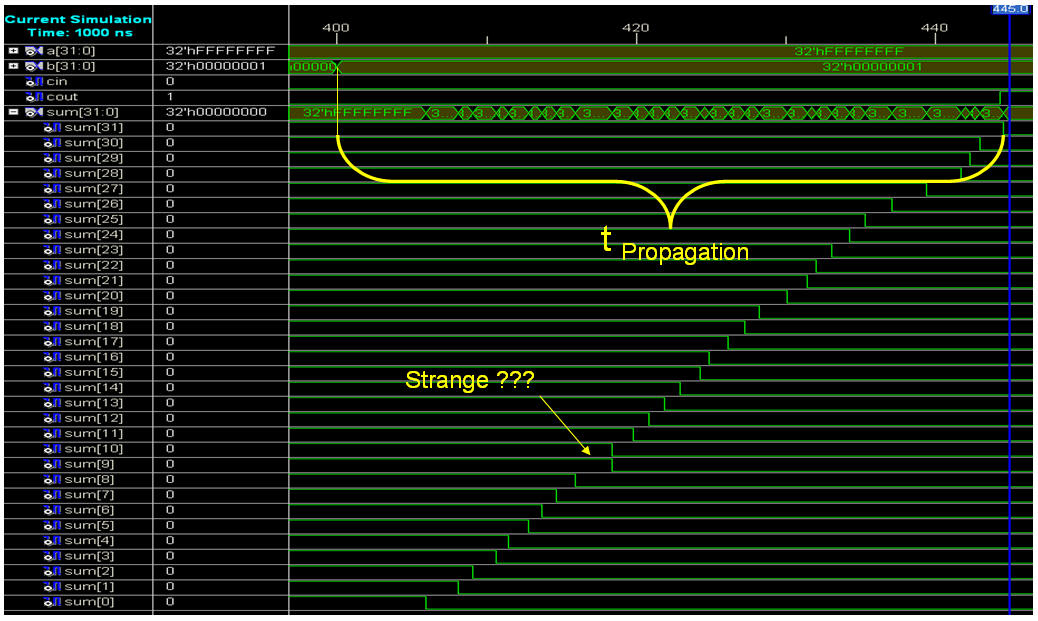 |
| |
|
| |
Just as expected will the
ripple nature of the Carry be shown in a simulation
of the Ripple Carry adder.
Strange result for the Sum(11) and
Sum(10) but never mind .....
|
|
|
|
